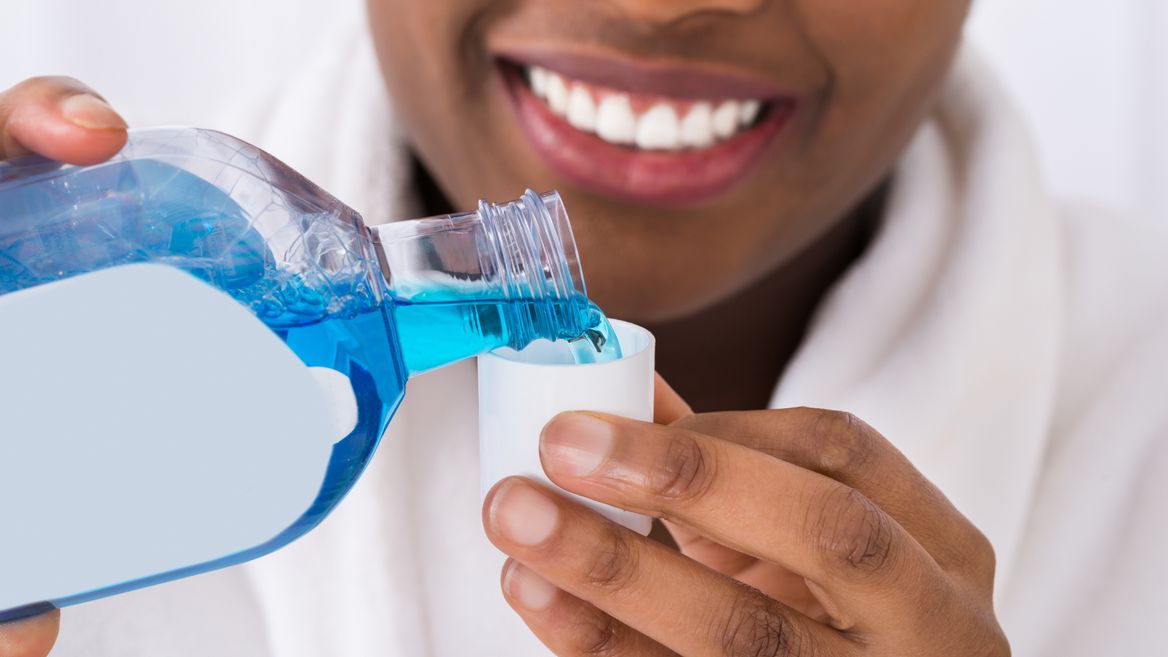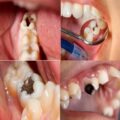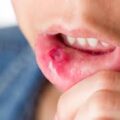What is a mouthwash?
A mouthwash or rinse is a liquid product used to rinse your teeth, gums, and mouth. It usually contains an antiseptic to kill harmful bacteria that can live between your teeth and on your tongue.
Some people use mouthwash to fight against bad breath, while others use it to try to prevent tooth decay. Mouthwash doesn’t replace brushing your teeth or flossing in terms of oral hygiene, and it’s only effective when used correctly. It’s also important to understand that different product formulas contain different ingredients, and not all mouthwashes can strengthen your teeth.
The main function of most mouthwashes is to freshen breath, although if you suffer from severe chronic bad breath (halitosis), talk to your dentist about other ways to address the causes of the problem and manage your bad breath condition.
Pros And Cons Of Mouthwash With Alcohol
That said, some types of mouthwash, such as fluoride rinses, can help protect teeth against acids produced by plaque bacteria if you use them after you have thoroughly brushed and flossed your teeth. And your dentist may prescribe a specific mouth rinse or mouthwash if you are recovering from a fungal infection or a bout of gum problems.
According to Colgate’s site, most marketed mouth rinses contain alcohol, specifically ethanol. Ethanol can cause burning and dryness and aggravate many oral conditions as well as Sjögren’s syndrome, diabetes, or alcoholism.
Beyond that, studies by BioMed Research International suggest alcohol-free mouthwashes have a better effect on the gloss, color, hardness, and wear of your teeth and fillings.
Now, these alcohol-free options still prevent tooth decay, gum diseases, dry mouth, bad breath, and plaque and tartar buildup, as well as work to whiten your teeth. Though, they’re gentler and contain natural and often organic ingredients. In fact, when there’s no alcohol in the formula, mouthwash can offer anti-inflammatory and anti-fungal therapeutic effects as well.
According to Alliance Dental, alcohol in your mouthwash does destroy almost all the bacteria in your mouth, but it’s both the bad and good bacteria, which, if you’re using the product every day, means bad breath can actually build up as a result of the imbalance of bacteria. Though alcohol-free mouthwash does not completely wipe your mouth clean, it does target more bad bacteria than good, which creates more of a balance in your mouth and leads to healthier teeth and gums.
Advantages of mouthwash
- Fights off cavities: If your mouthwash contains fluoride, it can help reduce cavities. This is because fluoride helps to reduce the cavitation and demineralization of your teeth. Fluoride rinse mouthwash usually contains about 0.05 percent of Sodium Fluoride, which is enough to provide protection against tooth decay.
- Prevent gum disease: An antiseptic or anti-plaque mouthwash can help inhibit the growth of bacteria that cause periodontal diseases such as gingivitis. The active ingredients in these antibacterial mouth rinses include chlorhexidine, triclosan, and thymol.
- Safeguard your pregnancy: This advantage is linked to the antibacterial properties of your mouthwash. The bacteria from periodontal diseases such as periodontitis can get into the pregnant woman’s bloodstream and increase inflammatory markers. This can stimulate contractions, resulting in preterm labor. A study by the American Journal of Obstetrics and Gynecology found that pregnant women who used antibacterial mouthwash throughout their pregnancy were less likely to go into preterm labor.
- Teeth whitening: There are specific mouth rinses that can give you a brighter and whiter smile. These rinses usually contain bleaching agents such as hydrogen peroxide that remove stains and whiten teeth over time.
- Reducing sensitivity: If you have sensitive teeth, you can use mouth rinses that contain Arginine. This ingredient helps to seal dentinal tubules in the sensitive sites. However, it is always better to consult with your dentist before using any desensitizing mouthwash.
- Soothe mouth ulcers: If you have any canker sores or mouth ulcers, mouthwash can detox the area. This reduces the bacteria that can irritate the site. Rinsing your mouth with salt water is also effective for soothing canker sores.
Disadvantages of mouthwash
There are a few disadvantages to consider when using a mouth rinse. It is important to note that most of these disadvantages are a result of oral rinses that contain alcohol.
- It has been linked to oral cancer: There is a raging debate over whether mouthwashes that contain alcohol can cause oral cancer. Though these mouth rinses can reduce lots of oral diseases, it is better to talk to your dentist before using any oral rinses that contain alcohol.
- Increase the sensitivity of your teeth: The alcohol in mouth rinses can dissolve the mucus layer. This leaves your teeth vulnerable and increases their sensitivity.
- Irritates canker sores: If the alcohol level in the mouth rinse is too high, it can irritate ulcers and canker sores in your mouth.
- Masks bad breath: If you do not practice proper hygiene like regular brushing and flossing, the mouth rinse will simply mask the bad smell. In fact, using an oral rinse without brushing your teeth is equivalent to using cologne instead of taking a bath.
- Reduces the benefits of toothpaste: If you use your mouthwash immediately after brushing your teeth, it could rinse out the fluoride and reduce the benefits of using toothpaste. Furthermore, the chemicals in your mouth rinse and the chemicals in your toothpaste could interact and cancel out the benefits of each other. Dentists recommend using an oral rinse at least 30 minutes after brushing your teeth.
Conclusion
Mouthwash boosts your oral health and gives your breath a makeover. However, it is better to use an alcohol-free mouth rinse as most of the disadvantages associated with mouthwashes are due to high alcohol content. If you have gum or cavity issues, it is better to get a recommendation from a dentist on the right mouthwash for you. SEE: Good Oral Hygiene Routine For Kids & Adults






